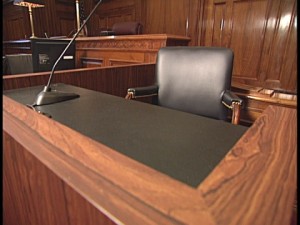People v. Honghirum
NY Court of Appeals
2017 NY Slip Op 04496
Decided on June 8, 2017
Issue: Whether defendant was denied effective assistance of counsel when counsel failed to object to the admission of evidence that the victim disclosed abuse three years later, and then again four years after her initial disclosure.
Holding: Defendant was not denied effective assistance of counsel because defense counsel did not demonstrate the absence of strategic or legitimate explanations for his failure to object to the admission of evidence.
Facts: The defendant was charged with sexual conduct against a child in the first and second degrees after a then 17-year-old victim, a family member of the defendant, told her school counselor that the defendant had repeatedly molested her from age 5 to 10. The defendant argued that, although his lawyer’s defense at trial was that the victim’s disclosure to her counselor was a recent fabrication, his lawyer failed to present the defense until summations and it was inexplicable given the testimony that the victim had disclosed the abuse to three friends four years earlier. However, the Court of Appeals found that the record showed that defense counsel intended to portray the victim as a troubled teen who fabricated the allegations as early as voir dire and continued throughout trial.
Defense counsel initiated his fabrication defense in his opening statement, urging the jury to consider the victim’s credibility and “delay in outcry.” The victim’s school counselor testified to the victim’s statements and the court instructed the jury on two occasions to consider the testimony not for the truth of the victim’s statements, but for the issue of outcry and the victim’s state of mind. A detective also testified to the victim’s statements and that he had spoken to one the victim’s friends who told the detective that the victim had disclosed the abuse with her. Defense counsel did not object to the disclosure testimony of either witness.
In summation, defense counsel focused on the victim’s troubling journal entries right before her disclosure?to her counselor, the unlikelihood that the victim’s previous disclosures to her friends were ever made, and the lengthy delay between the abuse and the disclosure to an adult  as well as inconsistencies in the victim’s testimony. The jury was charged with respect?to?prompt outcry and was instructed to consider evidence that the victim either “made prompt disclosureor evidence that she failed to do so may be consideredas a bearing upon the witnesss credibility.” The jury convicted the defendant of first-degree course of sexual conduct against a child.
as well as inconsistencies in the victim’s testimony. The jury was charged with respect?to?prompt outcry and was instructed to consider evidence that the victim either “made prompt disclosureor evidence that she failed to do so may be consideredas a bearing upon the witnesss credibility.” The jury convicted the defendant of first-degree course of sexual conduct against a child.
Analysis: The Court of Appeals began its analysis by addressing both the federal and New York state standard for determining ineffective assistance of counsel. Under the federal standard, a defendant must demonstrate that (1) his or her attorney committed errors so egregious that he or she did not function as counsel within the meaning of the United States Constitution, and (2) that counsel’s deficient performance actually prejudiced the defendant. In New York, effective assistance is met when “the evidence, the law, and the circumstances of a particular case, viewed in totality and as of the time of the representation, reveal that the attorney provided meaningful representation.”
The New York standard, in contrast, provides greater protection than the federal test because ineffective assistance of counsel warrants reversal if a defendant is deprived of a fair trial. Pointing to Strickland v Washington, 466 US 668, 689 (1984), the Court held that the defendant must overcome the presumption that the challenged action might be considered a sound strategy.
The defendant, here, asserted that counsels failure to object to the testimony regarding the victims disclosure must have derived from counsel’s ignorance or misunderstanding of the law on prompt outcry. According to the defendant, this reasoning would mean defense counsel’s actions could not be considered a matter of strategy.
While the Court of Appeals agreed that the use of a victim’s “prior consistent statements to bolster the witnesss credibility” is generally not permitted, it is permitted to “demonstrate a prompt outcry, rebut a charge of recent fabrication, or to assist in explaining the investigative process and completing the narrative of events” The two circumstances where prior consistent statements are allowed derive from the Court of Appeals’ decisions in People v Ludwig, 24 NY3d 221 and People v Gross, 26 NY3d at 694-695, which were made after the defendant’s conviction.
The Court of Appeals held that, although the Ludwig and Gross decisions were made before the defendant’s conviction, it is likely that a reasonably competent attorney could conclude that the victim’s disclosures were likely admissible to “complete the narrative.” Accordingly, defense counsel was not ineffective for failing to object to the testimony but, rather, defense counsel was effective because he “strategically chose to use the evidence to the defendant’s advantage by exploring the…disclosure in depth to support the defense of recent fabrication.” Even though defense counsel’s strategy was ultimately unsuccessful, the Court of Appeals still held that “counsels efforts should not be second-guessed with the clarity of hindsight to determine how the defense might have been more effective.”

